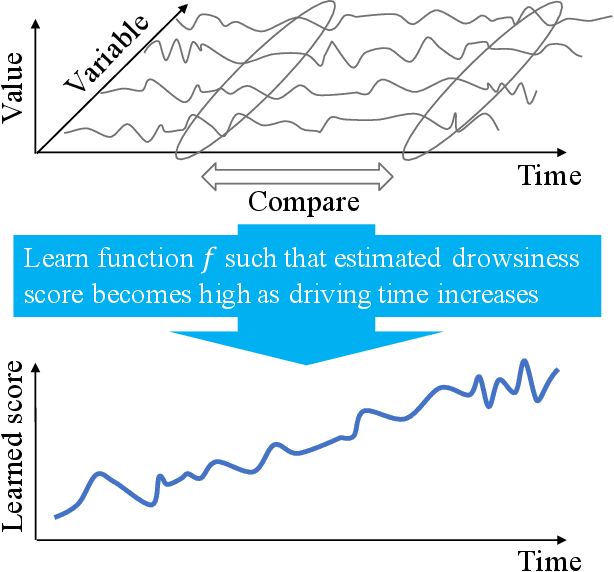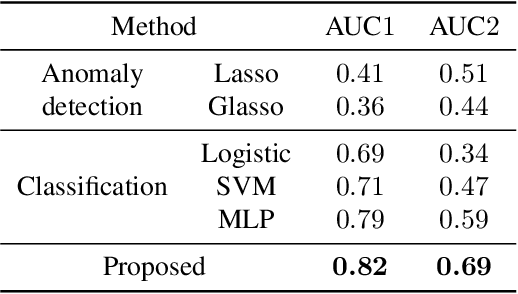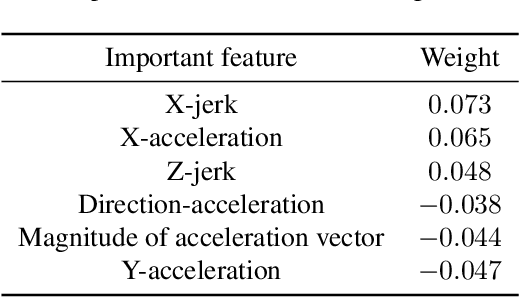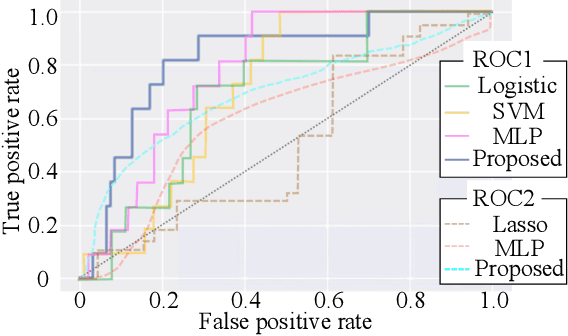Learning to Estimate Driver Drowsiness from Car Acceleration Sensors using Weakly Labeled Data
Paper and Code
May 12, 2020



This paper addresses the learning task of estimating driver drowsiness from the signals of car acceleration sensors. Since even drivers themselves cannot perceive their own drowsiness in a timely manner unless they use burdensome invasive sensors, obtaining labeled training data for each timestamp is not a realistic goal. To deal with this difficulty, we formulate the task as a weakly supervised learning. We only need to add labels for each complete trip, not for every timestamp independently. By assuming that some aspects of driver drowsiness increase over time due to tiredness, we formulate an algorithm that can learn from such weakly labeled data. We derive a scalable stochastic optimization method as a way of implementing the algorithm. Numerical experiments on real driving datasets demonstrate the advantages of our algorithm against baseline methods.
 Add to Chrome
Add to Chrome Add to Firefox
Add to Firefox Add to Edge
Add to Edge